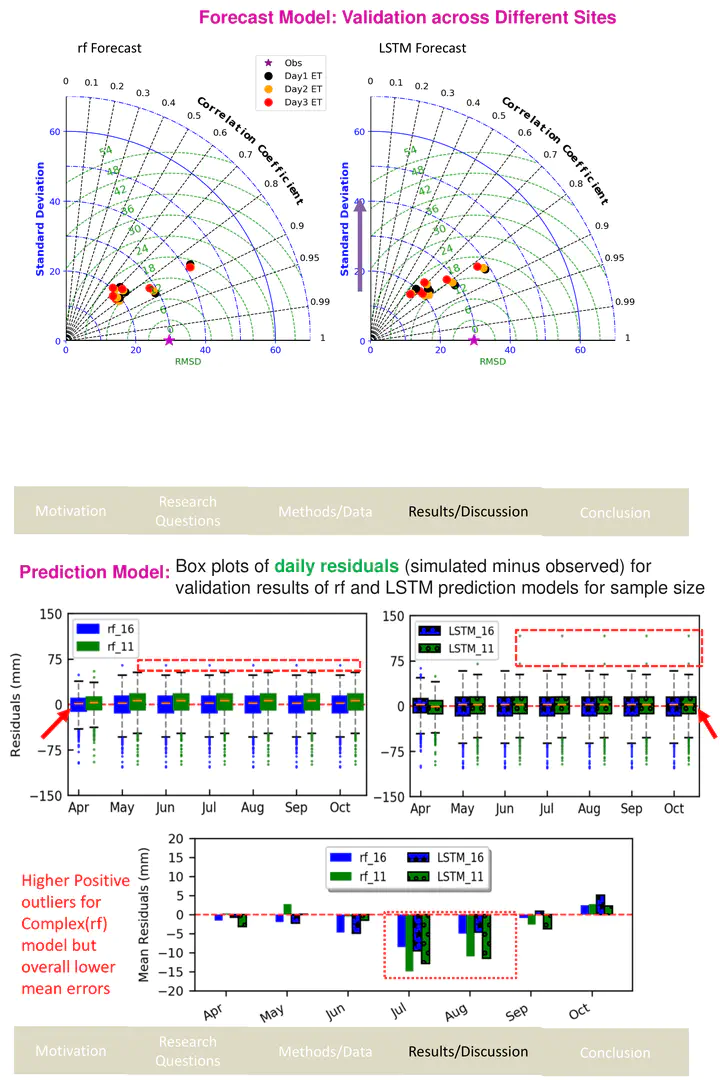Field-scale mapping and forecasting of water budgets in intensively irrigated agricultural regions through an advanced ensemble modeling framework

Conference: ‘American Geophysical Union, Fall Meeting 2019, H23C-02’
Abstract: In our ability to sustain food production, it is important to know how much water our crops need. Current drought forecasts cover large regions and are not specific to individual farms. Here, we seek to improve forecasting of how crops drought stress changes over time during different stages of growth through advanced mapping and modeling of evapotranspiration (ET) with NASA space borne sensors. We developed an algorithm that can accurately predict and forecast farm-scale regional daily out to 3 days. We use these forecasts to determine what varieties of a crops use less water or what varieties are best performing under water stress conditions. We hypothesized that thermal products from Moderate Resolution Imaging Spectroradiometer (MODIS) and meteorological information provide the resolution and temporal repeat frequency necessary to develop ET products. These goals were accomplished by forecasting water demand (ET loss) by crops with help of ensemble machine learning algorithms with use of meteorological data, MODIS products and ground observation from flux towers. From these products, we developed, calibrated and evaluated a new crop ET product against field measurements of ET from a network of crop eddy covariance flux towers in Midwest USA. These towers are currently operating in irrigated and rain fed field corn, soybean, wheat, clover and potato farms under a range of water management strategies. Daily ET forecast (3 days) model based on random forest (RF) has R2 and RMSE of 0.72 mm and 0.76mm respectively while recurrent neural network (RNN) ensemble forecast model was able to forecast 3 days ET with R2 and RMSE of 0.71 mm and 0.78 mm respectively. New field-scale ET maps can provide deep insights into how farmers could use limited water resources efficiently to maintain productivity, while sustaining surface water resources in the face of climate change.